
Anxiety is a common emotion that many of us are familiar with. We may all experience it on certain occasions that may be stressful. This is why not all anxiety is an anxiety disorder. However, when anxiety builds up over time, and is ignored, it can manifest in different ways. There are some common ways how unprocessed anxiety manifests in our lives, and these are known as anxiety disorders.
Anxiety Disorders can cause a great deal of stress while carrying out daily activities. Normally, anxiety is a helpful emotion that warns us when we are under threat. But when we experience excessive anxiety, it starts to take control over different parts of our life negatively.
The key to managing your anxiety disorders is to understand them. In this article, we look through the different anxiety disorders, and ways you can manage them. Managing anxiety is essential to help you overcome anxiety disorders and lead a well-balanced and peaceful life.
When Is An Anxiety Disorder Diagnosed?
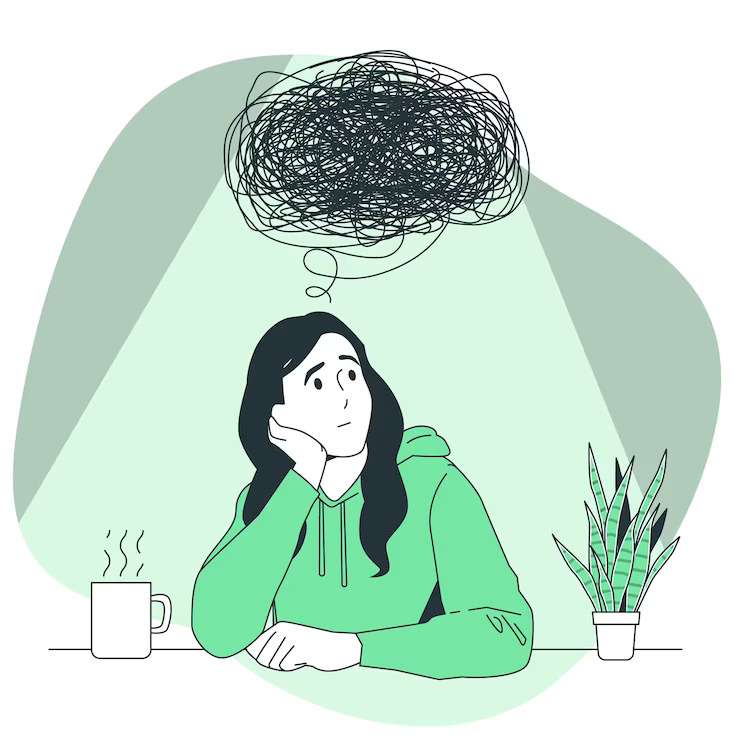
“Feeling anxious” is considered to be an anxiety disorder when your anxiety starts affecting your daily life. With Anxiety Disorders, anxiety takes the center stage of your life. You may spend most of your time managing or worrying about certain symptoms coming back. For anxiety to be considered a disorder it must be so much that it impacts your social and work life.
With anxiety disorders like Obsessive Compulsive Disorder, you may worry about your intrusive thoughts. This may lead you to engage in compulsive behaviors.
On the other hand with Panic Disorder, you may begin to worry if a panic attack may occur again. You may also begin to avoid public spaces due to your fear of getting a panic attack. This fear of public spaces is known as Agoraphobia.
Excessive anxiety can manifest in multiple forms. Therefore, there are different types of Anxiety Disorders.
Types of Anxiety Disorders
The core feature of all anxiety disorders is unresolved anxiety. This anxiety can be overwhelming and deep-rooted, and we may be unable to process or sit with it. Therefore, our mind and body bring out various symptoms to distract us from the anxiety.
These symptoms over time, turn into Anxiety Disorders. They are of the following types:
- Generalized Anxiety Disorder: Generalized Anxiety Disorder or GAD involves extreme fear or worry in almost every aspect of life. You may also experience certain bodily symptoms such as tiredness, muscle pain or stiffness, and a change in sleep and eating patterns.
- Social Anxiety Disorder: In this disorder, you may avoid social situations, or you may find social settings overwhelming. You may avoid speaking in public, socializing with people, or avoid eating in public.
- Panic Disorder: Panic Disorder involves repeated panic attacks. A panic attack is a sudden onset of extreme fear and distress in the mind and the body. It causes sweating, palpitations, chest heaviness, rapid breathing, and a fear of losing control or dying. It can be an extremely frightening experience, and it may make you worried about having another panic attack.
- Agoraphobia: Agoraphobia is a fear of being in public spaces. It is a fear of not being able to escape, or not receiving help. It could happen on its own, or as a result of a panic disorder. Agoraphobia with a panic disorder may cause you to worry about having another panic attack in public, and not receiving help. This can make you avoid getting out of your home, or you may only leave with a companion.
- Phobia: Phobias are fear of specific things, situations, or people. A fear is called a phobia when what you fear isn’t usually harmful. Some common examples of phobia are the phobia of blood, certain animals, insects, water, and flying.
- Separation Anxiety: This is the intense fear of being separated from a close one. If you experience separation anxiety, you may try to stay as close as you can with the close one. You may also worry if you may lose them, and may have nightmares of losing them.
Thus, anxiety shows up in various forms which are broadly termed as “Anxiety Disorders.” To treat anxiety disorders, you will have to address the deeply rooted anxiety within you. It is only then you may find relief from the symptoms of anxiety.
Medication for Anxiety Disorders: Is It Necessary?
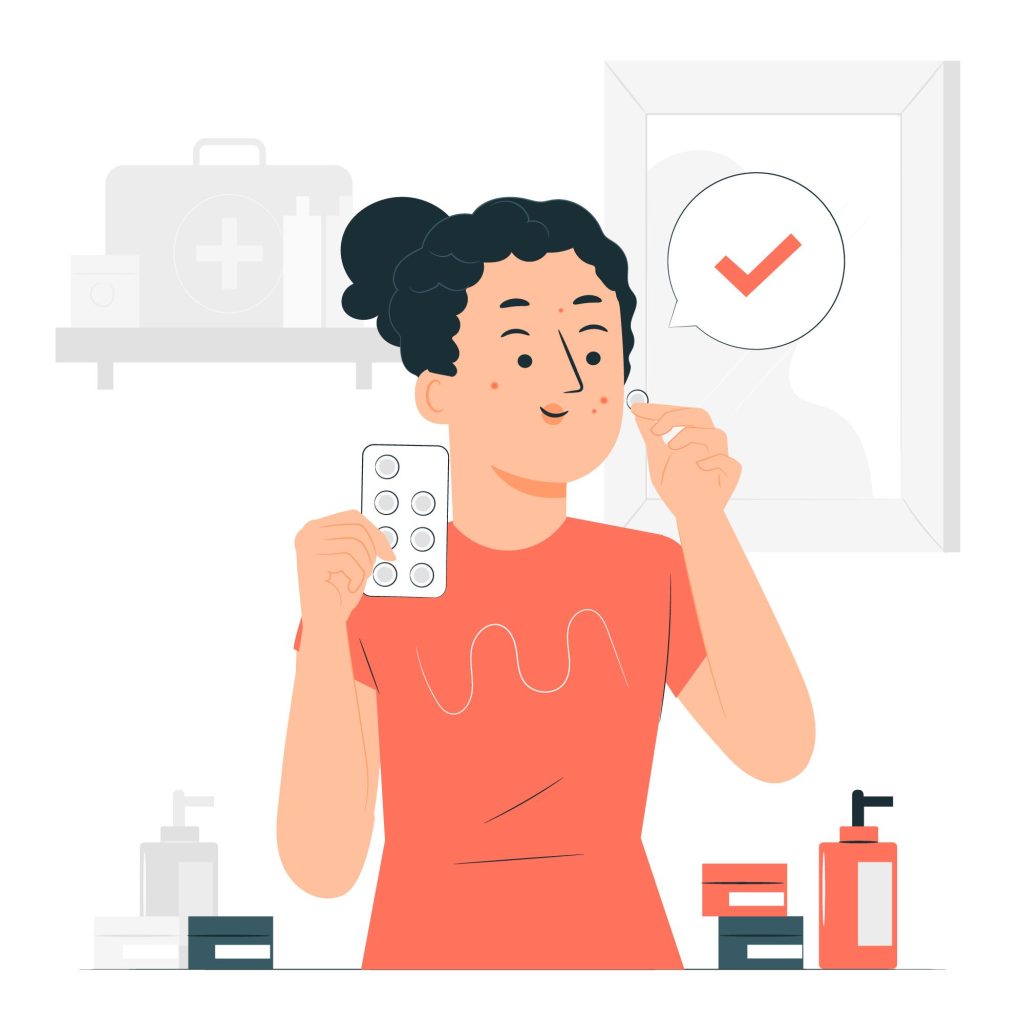
Whether medication is necessary for anxiety disorders or not depends upon the severity of the symptoms and the extent of dysfunction these symptoms bring to your life. Sometimes, you may deal with severe anxiety which may produce extreme symptoms. If these symptoms disturb multiple areas of your life, then medications become necessary.
Medications help to treat and manage the symptoms of various anxiety disorders. Medications like benzodiazepines, for example, can help with the rapid heartbeat and anxiety during panic attacks.
However, treating anxiety has a lot to do with regulating the nervous system. Medications only help the symptoms of the anxiety disorder and may be very necessary to manage the difficulty for a while. However, the deep rooted issues leading to the anxiety disorders can only be worked through by therapy and regular relaxation, meditation and other self-management practices.
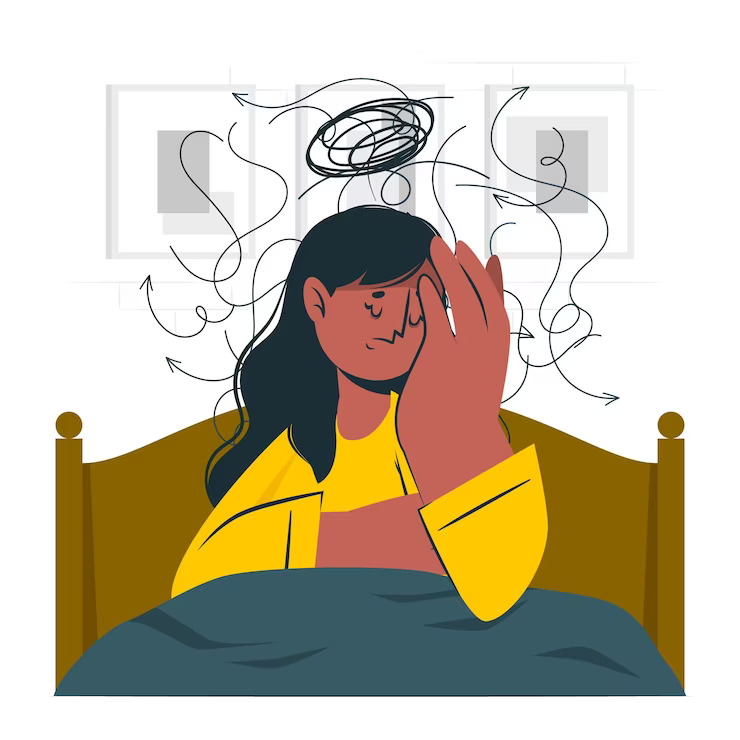
Are your anxieties holding you back?
Counseling can be a great tool for you to manage and overcome your anxiety and lead a happy, stress-free life.
We are here for you.
Counseling And Therapy For Anxiety Disorders
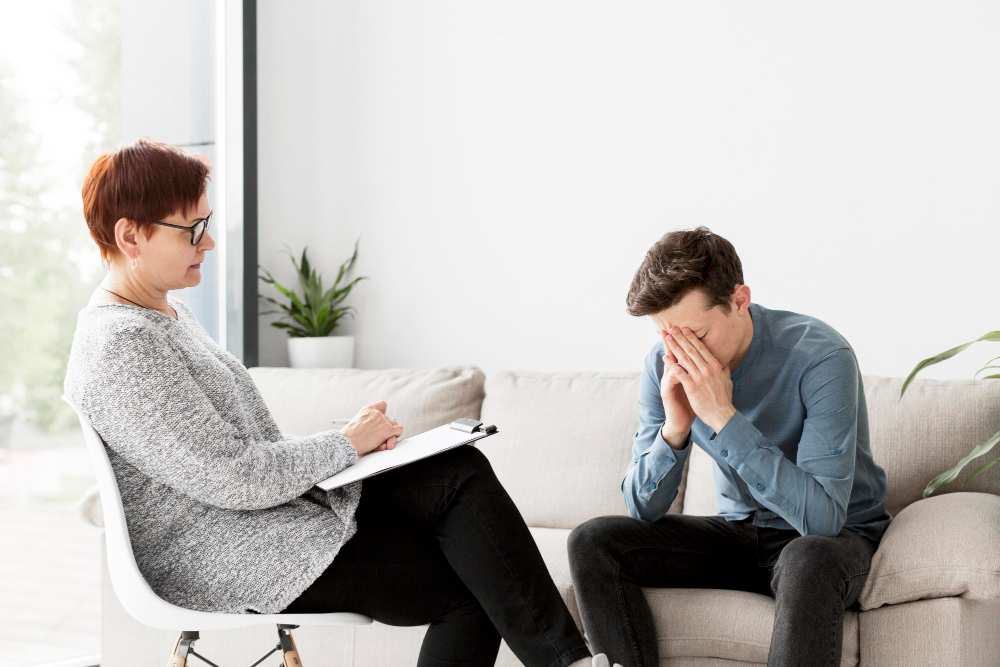
At Inner Space, we believe that treating anxiety requires a multi-dimensional approach. Therefore, our therapists help you observe the underlying patterns of negative thoughts and beliefs, and regulate your nervous system and body through relaxation and somatic therapies.
Learning to handle anxiety requires learning to process fears and sit with difficult emotions. These practices are crucial to overcoming anxiety and taking charge of your life again. A good and qualified therapist can help you stay with fear and process it.
Therefore it is important to find the right therapist to help you through an anxiety disorder. Going for counseling can help you learn ways to manage everyday stress and reduce the symptoms of anxiety.
Anxiety and anxiety disorders can be a tough experience. However, with the right support, you can manage your anxiety and live your life with ease.
Self-Help Techniques For Anxiety Disorders
There are numerous self-help techniques you can do by yourself to manage some symptoms of anxiety. Taking help of these techniques, along with therapy and/or medication, can improve your ability to manage the uncomfortable sensations and emotions caused by anxiety.
The techniques listed below are simple, effective, and can be easily done by yourself. We have also added some of our free resources which you can use for each of these techniques.
- Practice Mindfulness Meditation: Mindfulness Meditation is the practice of bringing awareness to the present and the sensations within you. Often, anxiety causes us to spiral down into a pit of negative thoughts. Mindfulness helps us to observe our thoughts without judgement, and remain present. When anxiety pulls us to the past or future, mindfulness meditation acts as an anchor to keep us in the present.
If you are interested to learn more about Mindfulness Meditation, you can start with our free E-book: First Few Steps to Mindfulness by our Founder, Sadia Saeed.
- Learn the right way to breathe: Breathing is an underrated tool to manage anxiety. Focusing on breathing correctly can help us stay in the present and can help us feel calm. Diaphragmatic breathing is a breathing technique that you can use to manage anxiety.
If you are interested in learning Diaphragmatic breathing, you may check out this video on Diaphragmatic Breathing on Youtube.
- Practice Grounding: Grounding techniques are ways to help our body stay grounded and present. Anxiety can cause our body and mind to feel out of balance and less focused. Connecting with our environment and the ground beneath us can help us feel more centred and relaxed.
We have curated a playlist on how to manage Emotional Overwhelm using Grounding. Please click here to access the playlist.
- Practise Slow Yoga with Conscious Breathing: For ages, Yoga has been regarded as a great tool to manage stress, anxiety, and other mental and physical concerns. Practising yoga mindfully and slowly can also act as a great way to relax and slow down your body.
- Eat and Sleep Well: Research has shown the impact of our nutrition and sleep on our mental health. Eating a well-balanced, nutritious diet and having 6-8 hours of sleep every night can help in reducing the inflammation and reduce the level of cortisol (stress hormone) in the body. Lowering of cortisol helps reduce the anxiety.
Supporting Friends And Family With Anxiety Disorders
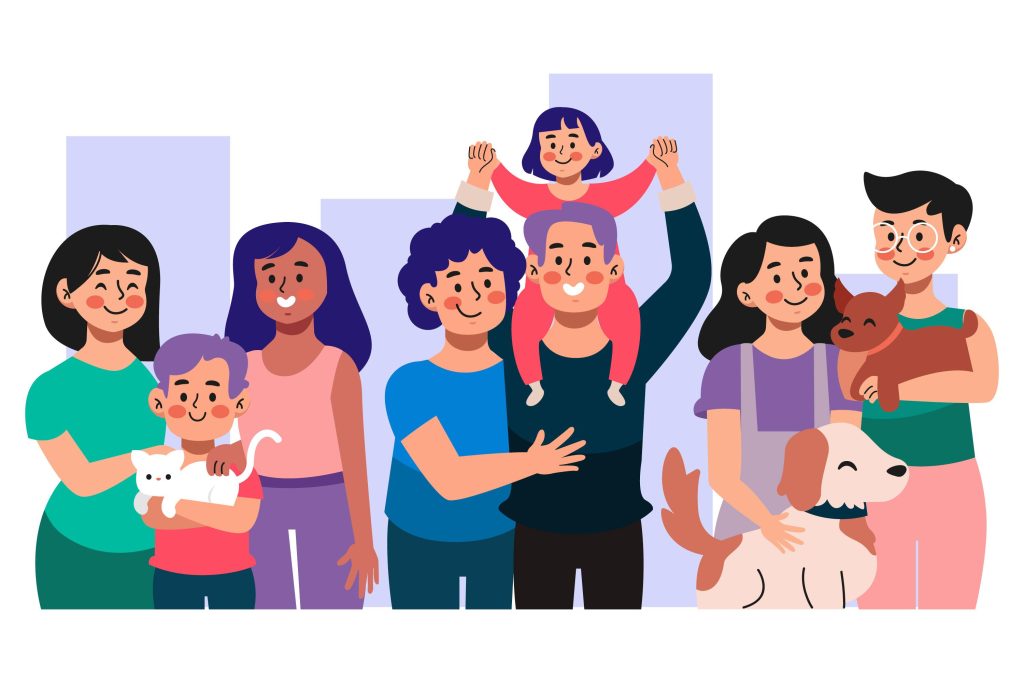
If your friend or someone in your family is experiencing anxiety, you must know that it is caused due to a dysregulated nervous system. They can’t snap out of it, or stop overthinking whenever they want to.
You may want to support your friend or dear one through their anxiety. There are a few ways you can extend support to them if you feel they are experiencing anxiety:
You can help them take therapy. You can suggest explaining to them the benefits of joining therapy and how it can help them manage their anxiety.
Create a supportive and relaxed environment at home. This can put them more at ease.
Extend your support. Anxiety can cause tiredness and fatigue. Helping your dear one through some tasks and joining them in a few self-care tasks can make them feel more motivated to make a change.
Learn more about anxiety. Sometimes, knowing more about a disorder can help us be less judgmental about it. Therefore, doing your own research about anxiety can give you a better idea on how you can support your friend or dear one better.
How To Prevent Anxiety Disorders?
If you are prone to worrying, addressing your worry before it’s too late is the best option. A stable and regulated nervous system is less likely to get stuck in an anxious loop.
Practising the self-care techniques mentioned above and taking up therapy to work through the worry, will help you keep your nervous system balanced. This can help reduce the chances of anxious feelings or thoughts coming up, thus, helping you to lead a balanced, fulfilling life.
Frequently Asked Questions
Anxiety can manifest differently in different people. Some people may notice their symptoms have gone completely, while some may continue to experience the symptoms in varying intensity. However, with early intervention and having healthy coping skills can help ease out the intensity of anxiety.
Anxiety helps us in many ways to stay alert, focused, and to manage daily tasks. However, excessive worry or anxiety can do more harm than good. It can hamper our daily life and cause mental and physical health difficulties. Anxiety cannot be prevented. But, it can be managed with early intervention, counseling, lifestyle changes, and having healthy coping skills in place.
While medications do help in managing certain symptoms of anxiety, many people do not require them. They can manage their symptoms without medication by going for therapy, using self-help and stress management strategies, and having a healthy lifestyle.
About the Author
This article was written by Parvathi Ganesan, Counselor at Inner Space. This post was consulted & approved by professional therapists practicing online therapy and counseling.
Ask a Therapist
If you are interested to know more about anxiety disorders and other mental health topics, ‘Ask A Therapist’ is a platform for you to ask your questions related to Mental Health, Mindfulness & Emotional Well-Being to our team of qualified Therapists.





